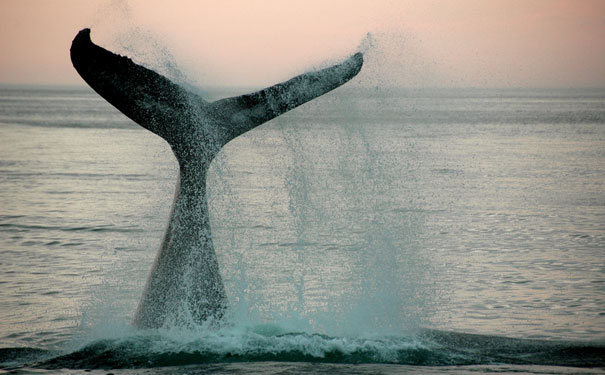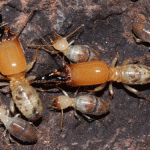
A whale's tail… the giant mammals play a crucial role in marine health. Image: Shutterstock
Fecal matter from the ocean’s largest inhabitants plays a critical role in the health of the marine food chain, US scientists have discovered.
The unique floating property of whale poo creates a cycle of nutrients circling throughout the ocean, University of Vermont biologist Joe Roman and James McCarthy from Harvard University found. Whales feed at depths, and their floating feces creates a kind of “upward pump”, distributing minerals such as nitrogen throughout the vertical scope of the ocean, the team explained in their findings, published in the journal PLoS ONE.
Whale waste is excreted in a foamy, liquid form that floats to the ocean’s surface, unlike denser waste from smaller fish, which sinks to the ocean floor. The foam is high in nutrients such as nitrogen, an important source of health for other fish.
While science has long understood the importance of plankton and small fish to recycling nitrogen, large mammals have largely been ignored until now, Roman and McCarthy add.
Higher nitrogen levels in coastal whale feeding areas, such as the Gulf of Maine off the northeast coast of the US, where the study was conducted, have a proportional impact on ocean ecosystems. Larger numbers of whales lead to greater phytoplankton growth, which in turn pushed up the volume of sea creatures who feed off the it, the research found.
This finding strengthens the call to protect whales across the globe. The role of these large mammals in the biological cycle of the ocean means that overfishing, culling or harvesting could have serious implications further down the food chain. Fewer whales could mean fewer fish, affecting fishing industries as well as the marine ecosystems they inhabit.
[Via ScienceDaily]






